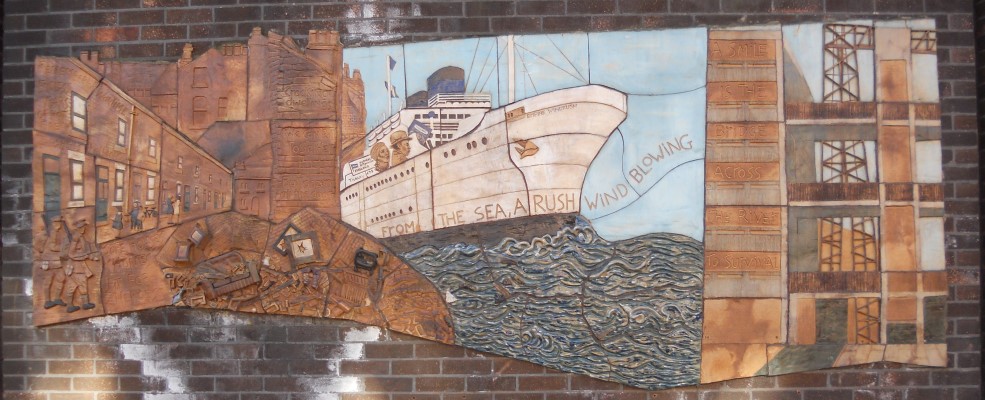The 75th anniversary on the 22nd June this year of the arrival in Britain of the S.S. Empire Windrush has prompted me to re-read Colin MacInnes’ The London Trilogy, comprising City of Spades (1957), Absolute Beginners (1959) and Mr Love and Justice (1960). MacInnes, who died in 1976, was an English writer and journalist, who spent his early life in Australia with his mother, the popular novelist Angela Thirkell, before returning to serve in the British Army during the Second World War.
I first read Colin MacInnes in the 1960s, but not again until recently when I found his books still on our shelves at home. There were also England, Half English (1961), a collection of MacInnes’ journalism, and To the Victors the Spoils (1984), a novel based on his experiences as a British Army field intelligence sergeant in Germany towards the end of and immediately after the Second World War.
Unlike Richard Hoggart or Stuart Hall, Colin MacInnes was not an academic, but he was nevertheless an early exponent of ‘cultural studies.’ His essays such as ‘The Express Families,’ ‘Newspaper Cartoons,’ ‘Pop Songs and Teenagers,’ and ‘Hamlet and the Ghetto’ are reminiscent of George Orwell’s ‘The Art of Donald McGill’ and ‘Boys’ Weeklies.’
An example from England, Half English: ‘A Short Guide for Jumbles (to the Life of their Coloured Brethren in England)’ is typical of MacInnes’ ironic style. ‘Jumble’ he says is (or was) Afro-Caribbean slang for ‘John Bull’ or a white Briton.
Two further examples: First, a liberal Jumble: ‘You’ll find there’s a certain amount of prejudice here, but some of us are just as worried about it as you.’ Unspoken answer: ‘Look after your own worries, man, and leave me to handle mine.’ Secondly: ‘It’s true that the coloured races have contributed—along with the Maltese, Cypriots and, outstandingly, our good selves—their quota of pimps, ponces, weed-pedlars and all-round hustlers to the English city undergrowths; but also, true that the activities of these doubly black sheep, when detected, pursued and punished, enjoy from the Sunday press, a generous publicity withheld from the deeds of the less exciting native entrepreneurs.’
Such pungent and ironic social comments continued in the novels. Again, drawing on personal experience, MacInnes gives a frank account of African and Caribbean immigrant culture and London youth more generally, in districts such as Notting Hill, the scene of ugly racial disturbances in 1958.
City of Spades focuses on a naïve Welfare Officer’s encounter with African and Caribbean immigrants which shows attitudes toward immigration. Absolute Beginners tells of teenage rebellion against adult norms, including deeply rooted racial attitudes. It was later a film (1986) with David Bowie, Patsy Kensit, and Mandy Rice-Davies. Mr Love and Justice describes Frankie Love, a pimp, and Ted Justice, a corrupt policeman, who are shown to have much in common.
The London Trilogy and England, Half English, are not carefully researched or balanced accounts of the Windrush generation, immigrant or settled, but impressionistic portraits of some popular perceptions held at the time, especially in London. Colin MacInnes’ writings are, I suggest, similar to those by Anthony Burgess or more recently Irvine Welsh. They make one think beyond one’s experience, as stimulating literature should.
Image credit: Ceropegius, CC BY-SA 3.0, via Wikimedia Commons

